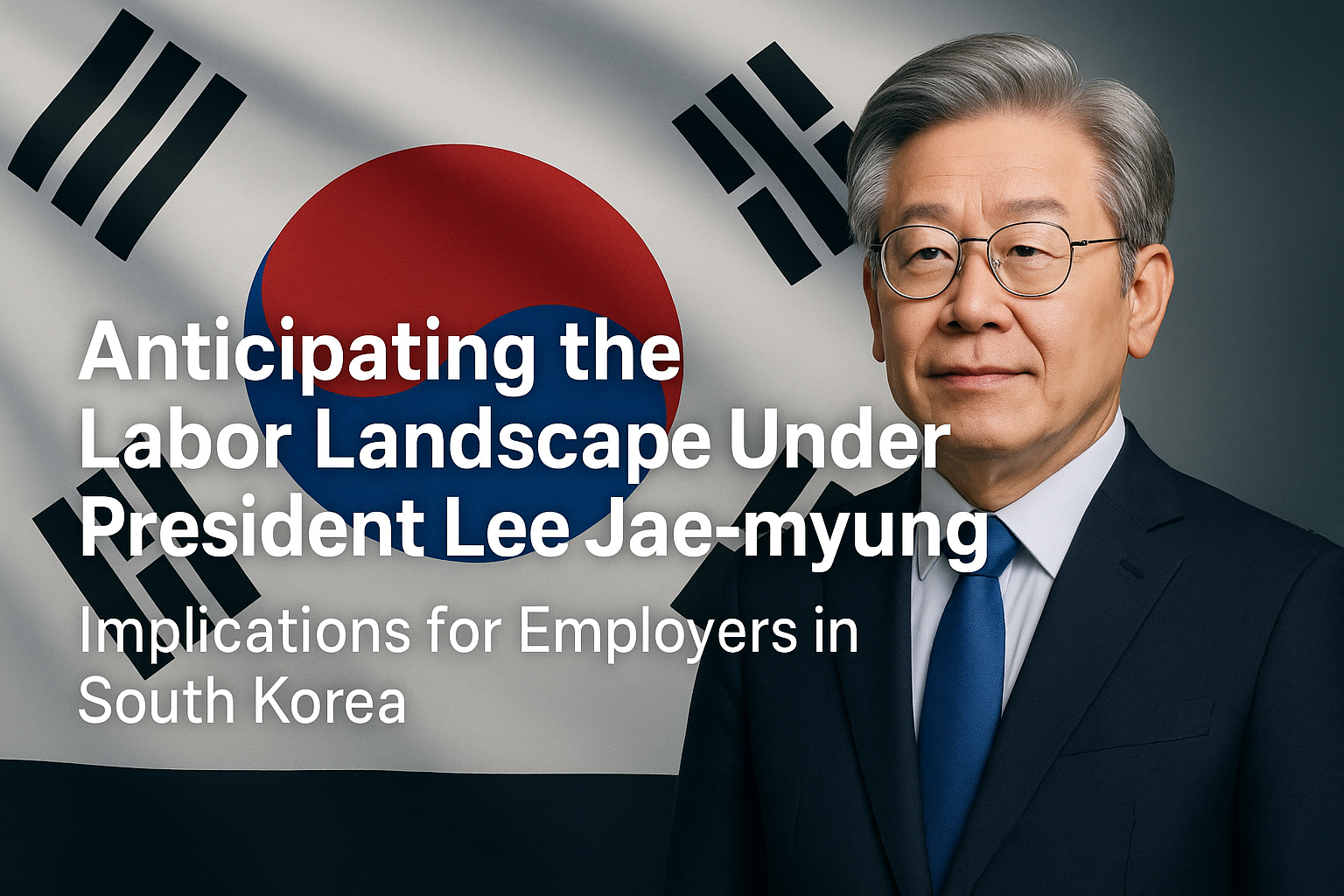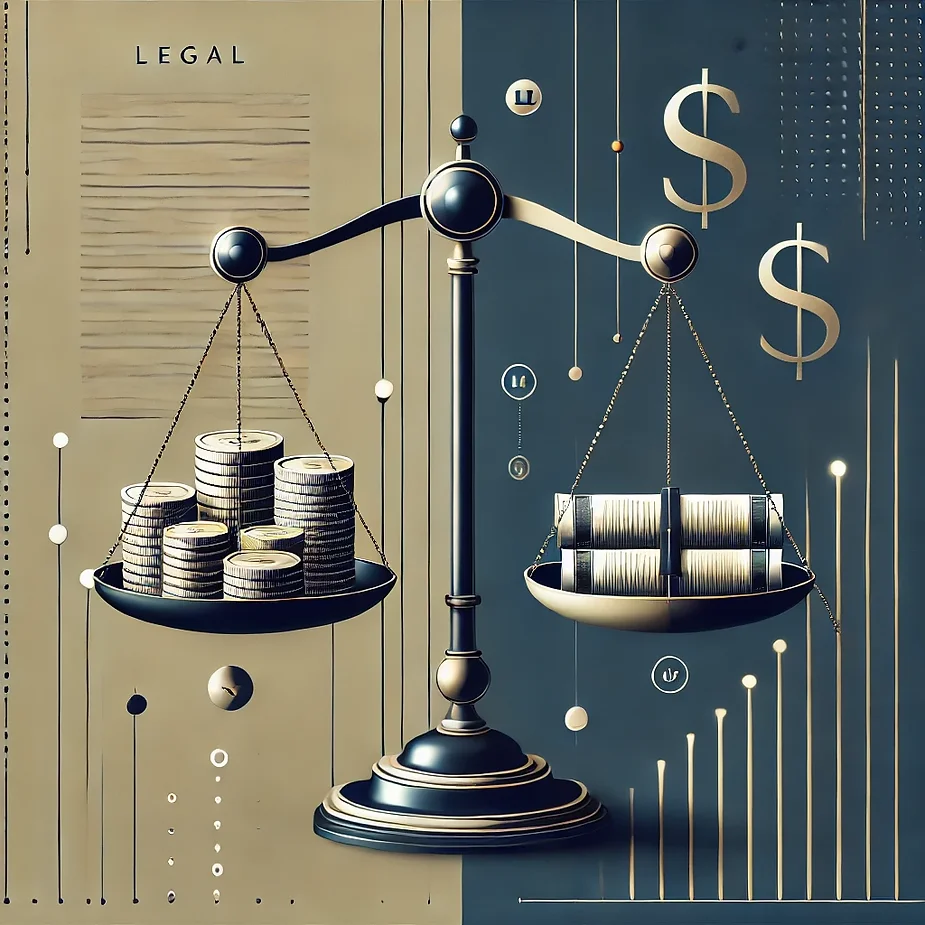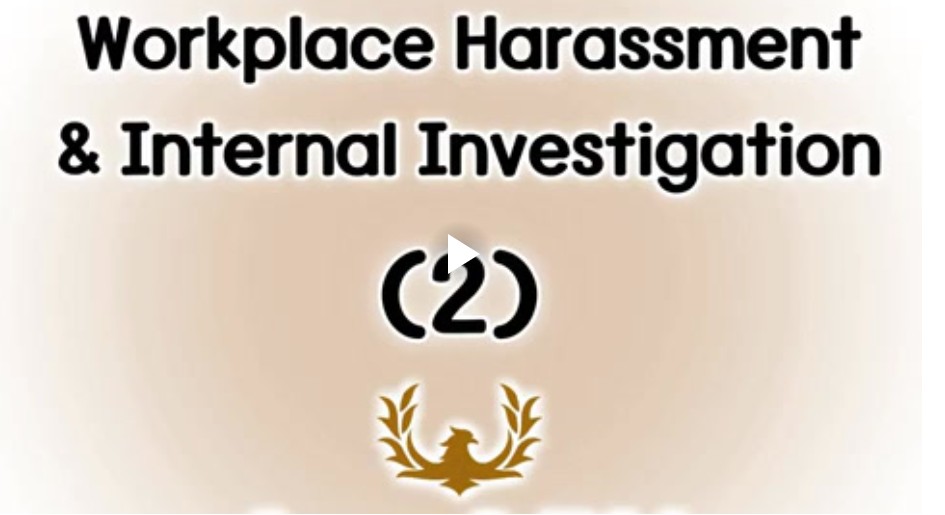With the inauguration of President Lee Jae-myung, South Korea enters a new era of labor and employment policies. The administration is expected to pursue substantive reforms aimed at strengthening worker protections, narrowing labor market disparities, and modernizing employment standards. Employers (especially those engaged in international business) should begin preparing for the impact these policy shifts may have on compliance, workforce strategy, and corporate governance. Some key areas where human resources are likely to be impacted include:
Reduction of Standard Working Hours and Promotion of Flexible Work Arrangements
President Lee has previously endorsed a phased reduction of Korea’s statutory working hours from 40 to 36 hours per week, with a long-term goal of aligning national labor norms with OECD standards (~1,740 annual hours). Policies promoting work-life balance, such as expanded paid leave entitlements, are expected to receive legislative backing.
Implications for Employers:
- Employment contracts and work rules may require revision to reflect new hour standards.
- Businesses should assess staffing models to adapt to compressed workweeks.
Expanded Protections for Non-Regular and Platform Workers
The new administration is expected to promote a comprehensive “Basic Law on the Rights of All Workers,” extending legal protections to freelancers, platform-based labor, and other categories traditionally excluded from Korea’s Labor Standards Act.
Implications for Employers:
- Employers will likely need to review and reclassify the employment status of contractors, part-time staff, and gig economy contributors.
- Worker agreements should be revised to reflect broader legal definitions of employee rights.
Wage Equality and Adjustments to Retirement Age
Enforcement of “equal pay for equal work” principles are likely to intensify, with scrutiny on compensation disparities among workers performing equivalent roles. Additionally, Discussions on raising the statutory retirement age to 65 appear to be gaining traction.
Implications for Employers:
- Employers should reassess pay banding, incentive schemes, and promotion pathways to align with equity expectations.
- Workforce planning must re-evaluate career development and role transition strategies for older employees.
Empowerment of Labor Unions
The new administration has expressed support for substantially enhancing collective bargaining rights, particularly for subcontracted workers. There may also be employment reforms towards industry-focused agreements, reshaping the landscape of labor-management relations.
Implications for Employers:
- Employers must invest in internal labor relations communication protocols and dispute resolution readiness.
- Proactive engagement with labor council is advised to ensure proactive compliance and negotiation support.
Abolition of the Comprehensive Wage System
Among President Lee Jae-myung’s labor pledges is the elimination of the comprehensive wage system—a framework that allows employers to bundle multiple wage components (such as overtime, holiday pay, and bonuses) into a fixed salary. This system has faced criticism for obscuring actual working conditions and limiting fair compensation for excess hours.
Implications for Employers:
- Employers using comprehensive wage structures should prepare for a regulatory phase-out and consider transitioning to itemized, transparent wage practices.
- Payroll systems and employment agreements may require overhaul to ensure compliance with revised wage calculation standards.
Conclusion
President Lee Jae-myung’s labor and governance agenda marks a likely pivot toward employee-centered reforms and heightened regulatory accountability. While the administration has yet to definitively introduce a concrete agenda or official position on labor and employment matters, the direction seems clear. Employers are advised to take proactive steps—engaging with legal advisors, auditing internal policies, and preparing for structural shifts—to ensure resilience and legal compliance in the evolving Korean labor landscape. InterLEX stands ready to assist with all of your needs. As a premier law firm specializing in South Korean employment and corporate law, InterLEX provides tailored legal solutions to both domestic and international employers. With deep insight into Korean legislative trends and regulatory frameworks, InterLEX helps clients anticipate risk, implement strategic compliance, and align with the country’s shifting legal environment.





